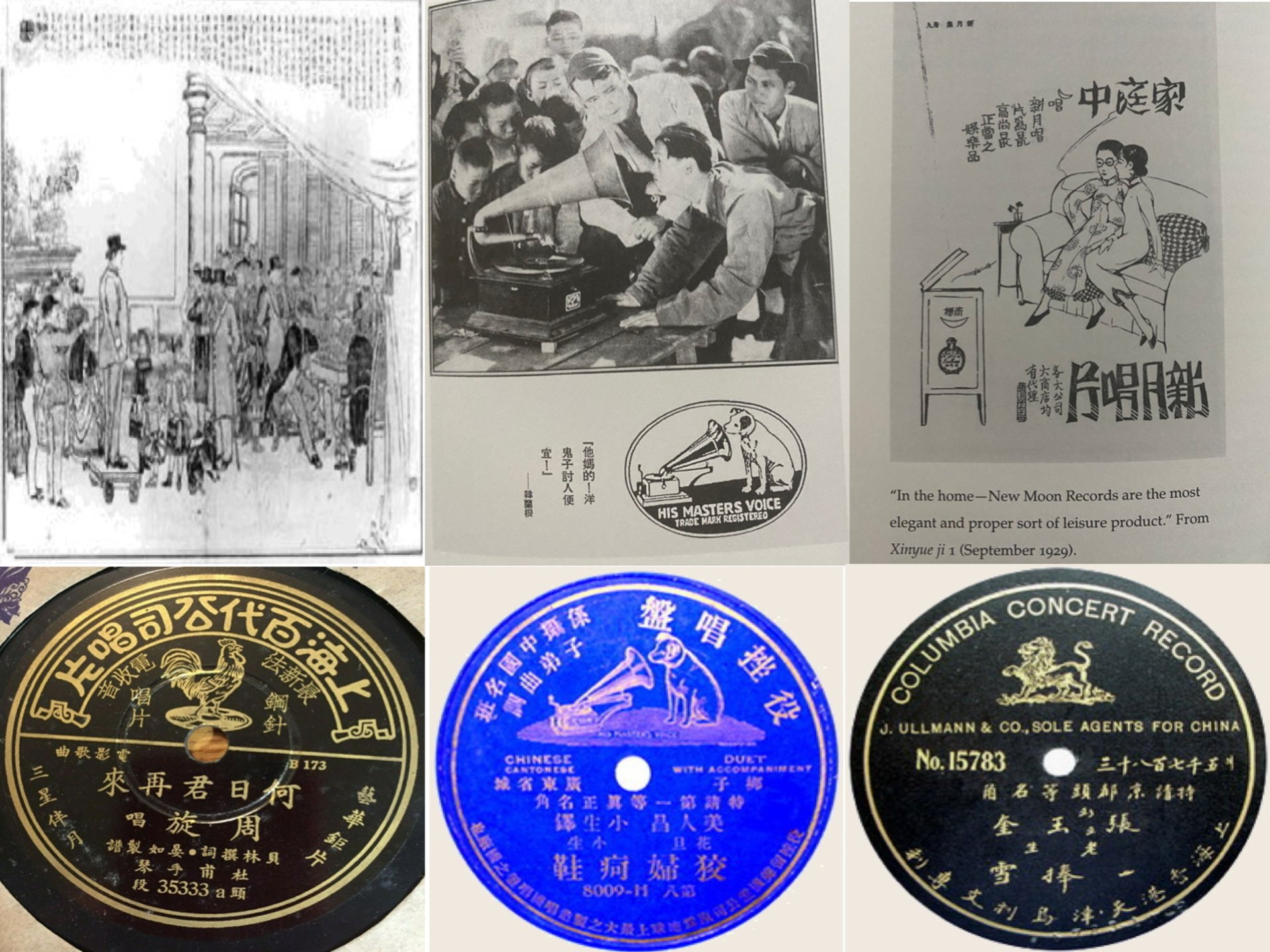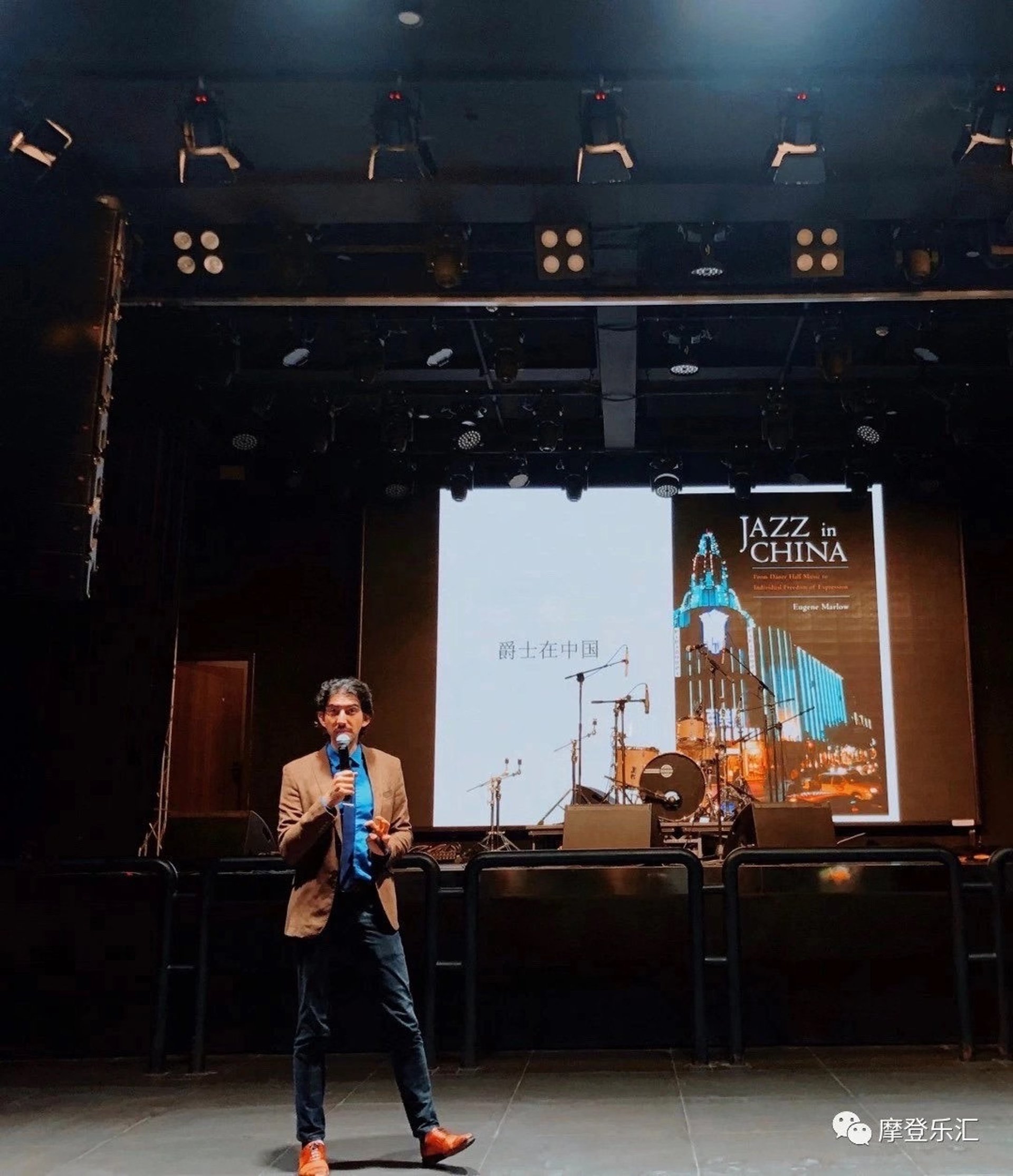
This is a running annotated bibliography of materials related to jazz and China, focusing on academic scholarship but also including journalism, documentaries and tangentially related research and scholarship. If you know of something that isn't listed here, please contact me and I will add it!

Ansfield, Johnathan. “Marsalis Shows China That Jazz Isn’t Just a Word.” The New York Times, February 23, 2000, https://www.nytimes.com/2000/02/23/arts/arts-abroad-marsalis-shows-china-that-jazz-isn-t-just-a-word.html. [last accessed December 11, 2024]
Atkins, Taylor E. (ed.). Jazz Planet. University Press of Mississippi, 2003.
*The chapter by Andrew F. Jones, “Black Internationale: Notes on the Chinese Jazz Age” comprises pp. 225-244. It is a supplement to his 2001 monograph and makes an argument for comparison of Black American and Chinese jazz aesthetic difference, “just as Ellington concerns himself with an ineluctably African-American modernity, Li Jinhui's music emerges from a context in which modernity is inescapably tied up with colonial power” (227). It centers around the Li Jinhui song “Express Train,” and through it, examines ideas of blackness and its association with America, colonialism, modernity, migration, race, and engages in some musical description.
Baranovitch, Nimrod. China’s New Voices: Popular Music, Ethnicity, Gender, and Politics, 1978-1997. Berkeley: University of California Press, 2003.
Bohlman, Philip, and Goffredo Plastino (eds.). Jazz Worlds/World Jazz. University of Chicago Press, 2016.
*The section on Cold War era jazz and the critique of jazz as representative of American exceptionalism, or “jazzocracy,” is Chapter 10: Jankowsky, Richard C. The Medium Is the Message? Jazz Diplomacy and the Democratic Imagination, pp. 258-288.
China Global Television Network (CGTN), “Peace Hotel Jazz Band: The Shanghai Style.” YouTube video, Oct 31, 2018. https://www.youtube.com/watch?v=2Zre_TvHzc4
Chen, Chen. “A Study of the Localization of Jazz in Shanghai.” Master thesis, Shanghai Normal University, 2005.
Chen, Szu Wei. “The Music Industry and Popular Song in 1930s and 1940s Shanghai, A Historical and Stylistic Analysis.” PhD diss., University of Stirling, 2007.
Paul Clark, Laikwan Pang, Tsan-Huang Tsai (eds.). Listening to China’s Cultural Revolution: Music, Politics, and Cultural Continuities, Palgrave Macmillan, 2016.
Clayton, Buck. Buck Clayton’s Jazz World. Assisted by Nancy Miller Elliot. Oxford: Bayou Press Ltd, 1989.
*The main content related to China is in chapter 3, “Shanghai” (66-78) but it begins a little earlier on page 60 (“About this time I met Teddy Weatherford, who had just arrived from Shanghai, China”), and mentions related to that period go as far as 86 (“I had been to Shanghai, China, I had been in movies, so I was about the biggest thing in Parsons, Kansas”).
De Kloet, Jeroen. China with a Cut: Globalisation, Urban Youth and Popular Music. Amsterdam University Press, 2010.
Ding, Ni. Jazz: The American Classical Music. Beijing: University of International Business and Economics Press, 2012. 丁铌, 爵士乐美国的古典音乐, 对外经济贸易大学出版社, 北京, 2012.
Field, Andrew D. Shanghai’s Dancing World: Cabaret Culture and Urban Politics: 1919—1954. Hong Kong: The Chinese University Press, 2010.
Farrer, James & Andrew D. Field. Shanghai Nightscapes: A Nocturnal Biography of a Global City. University of Chicago Press, 2015.
Havas, Adam & Bruce Johnson, David Horn (ed.). The Routledge Companion to Diasporic Jazz Studies. Routledge, 2024.
*The relevant content is Chapter 26: Yuhan Jiang 将玉涵, Becoming Cultural Elites in China: Jazz, Modernization, and Professionalism, pp. 259-268, DOI: 10.4324/9781003212638-31. She also has another article on the contemporary era which may be relevant: 蒋玉涵 Jiang Yuhan, “The Institutionalization of Inequality: Female Vocalists’ Struggles in the Chinese Jazz Scene,” Popular Music and Society, 47:2 (2024): 100-118. DOI: 10.1080/03007766.2024.2322323
Johnson, Bruce (ed.) Jazz and Totalitarianism. Transnational Studies in Jazz (series).Routledge, 2017.
*The relevant chapter by Adiel Portugali, “On The Marginality of Contemporary Jazz In China: The Case of Beijing” can be found on pp. 325-343. This material seems to be mostly an excerpt from his dissertation and monograph.
Jones, Andrew. Yellow Music: Media Culture and Colonial Modernity in the Chinese Jazz Age. Durham: Duke University Press, 2001.
Kielman, Adam. “Zou Qilai!: Musical Subjectivity, Mobility, and Sonic Infrastructures in Post-socialist China.” PhD diss., Columbia University, 2016.
Li, Mo. “A History of Jazz in China: From Yellow Music to A Jazz Revival in Beijing.” Master’s Thesis. Kent State University, 2018.
Lim, Louisa, “Survivors of Shanghai Jazz Age Play Anew.” NPR, All Things Considered, Sept 24, 2007. http://www.npr.org/templates/story/story.php?storyId=14655091. [last accessed December 11, 2024]
Marlow, Eugene. Jazz in China. From Dance Hall Music to Individual Freedom of Expression. Jackson: University Press of Mississippi, 2018.
Marlow, Eugene. Jazz In China, Documentary, YouTube Video, 2022. https://www.youtube.com/watch?v=Wy7UiTsKAKM
Mittler, Barbara. Dangerous Tunes: The Politics of Chinese Music in Hong Kong, Taiwan, and the People’s Republic of China Since 1949. Wiesbaden: Harrassowitz, 1997.
Moser, David. “The Book of Changes: Jazz with Chinese Characteristics.” The Anthill, Nov. 27, 2015. https://theanthill.org/jazz. [Last accessed Dec 11, 2024]
Portugali, Adiel. Jazz In Contemporary China: Shifting Sounds, Rising Scenes. Routledge, 2023.
Presswood, Marketus, “Sonicated Blackness in Jazz Age Shanghai, 1924–1954: Jazz, Community, and the (In)visibility of African American Musicians in the Creation of the Soundtrack of Chinese Modernity,” Souls, 22:2-4, (2020): 260-291.
Qian, Tong 钱彤 “The Developing of Jazz—Study of the Relationship between the Local Jazz and City Culture.” PhD diss., Northeast Normal University, 2016. http://kns.cnki.net/KCMS/detail/detail.aspx?dbcode=CDFD&dbname=CDFDLAST2017&filename=1016109840.nh&v=MjYwOTVnVmJ2S1ZGMjZHTEs0RjluSXI1RWJQSVI4ZVgxTHV4WVM3RGgxVDNxVHJXTTFGckNVUkxLZlpPUnRGeTc= [Last accessed Dec 11, 2024]
Xiang, Shang & Tik-Sze Carrey Siu, “Comparing Jazz Program Policies in Higher Education in China,” Arts Education Policy Review, 2021. DOI: 10.1080/10632913.2021.1952674
*This article only focuses on three schools: Shanghai Conservatory of Music, Nanjing University of the Arts, and Beijing Contemporary Music Academy. There are several more formal jazz education programs (such as the Central Conservatory in Beijing, Sichuan Conservatory in Chengdu, and Xinghai Conservatory in Guangzhou) as well as informal jazz education programs (the JZ School in Shanghai, the MIDI School in Beijing, and Golden Jazz in Zhuhai). As it was published in 2021, this seems like an oversight, but perhaps the authors chose to narrow the focus of the study, and concedes in the conclusion, “Despite the progress made in the last decade, we await further development of jazz education in China, particularly beyond higher education settings. Future research may look into both formal and informal jazz learning in the wider Chinese community” (8).
Shih, Matthew. “Negotiating the Image of a Modern Woman: Chinese and Jewish Sing-Song Girls in Shanghai’s Jazz Cabarets” American Musicology Society, conference presentation, Nov. 14, 2024.
*I was personally in attendance at this presentation. Though no recording or article exists, it may be forthcoming.
Smith, Whitey. I Didn’t Make a Million: How Jazz Came to China. Earnshaw Books, 2017.
*Smith’s memoirs were first published in Manila in 1956, where he escaped to after Japanese occupation in 1937 and stayed until his death in 1966. This edition has long been out of print and is difficult to obtain, but the edition reprinted in 2017 is widely available. I mention this detail to clarify the fact that his memoir came before Clayton’s, and to avoid confusion as to how authors like Jones (2001) and Field (2010) would have used his memoirs as primary sources for their research if the book had not been published yet.
Thomas, Robert McG. Jr. “Willis Conover, 75, Voice of America Disc Jockey.” New York Times, Obituary. May 19, 1996, p. 35.
Wang, Linfeng. “Jazz Education In Mainland China: Historical and Contemporary Perspectives.” PhD diss. 2022, University of Glasgow. https://theses.gla.ac.uk/83211/ [Last accessed Dec 11, 2024]
Xiao, Y., Du L. (Eds.). “Declassified Moment: Eavesdropping on ‘Enemy Station’ Voice of America.” VOA Chinese, a History. Oct 3, 2014. https://www.voachinese.com/a/history-mysterylisten-to-voa-in-the-dark-20141020/2470752.html [Last accessed Dec 11, 2024]
*Last updated: July 29, 2025

